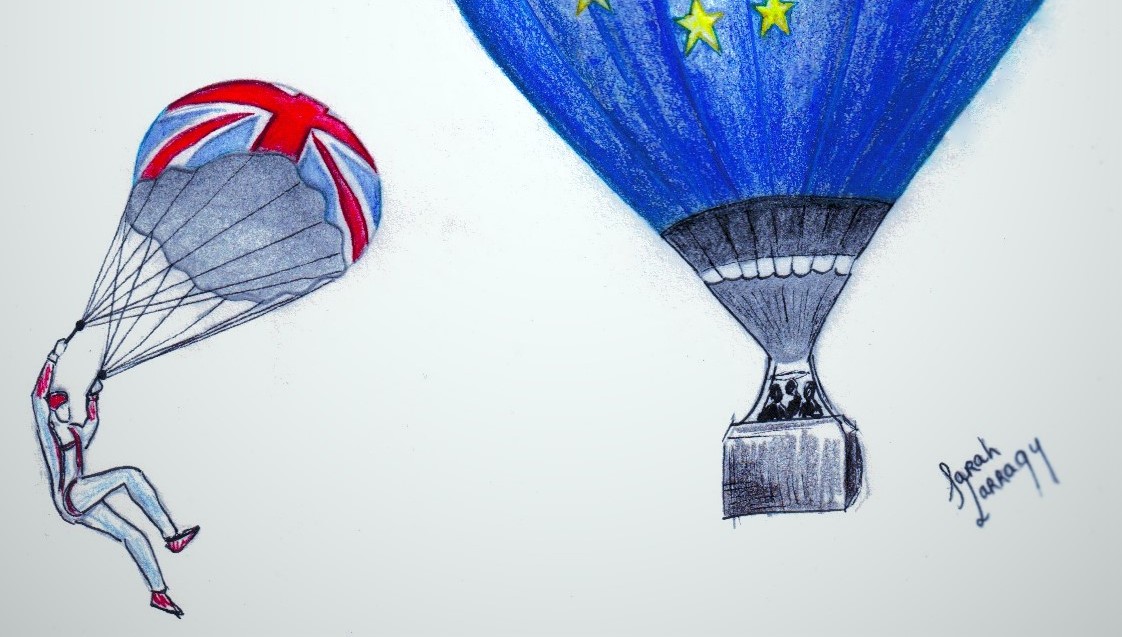The Phil commenced with their weekly chamber debate of the term in front of a packed audience of both old and fresh faces alike, debating whether Ireland should remain in the EU or opt to exit it as Britain did.
Jonathon Boylan opened the debate, proposing the motion that this house would Irexit. He focused on how the EU impinges on Irish autonomy imposing unfair financial obligations, pressuring Ireland to increase corporate tax rates and hold second referenda on the Nice and Rome Treaties until they were passed. In his words, in the EU, we have as much control over our finances as Augustus Gloop has over whether or not he will eat chocolate.
The opposition’s case was opened by the Phil’s guest speaker, Fine Gael County Councillor for Fingal, Ted Leddy. Leddy referenced the tragedies of the Second World War and stated emphatically that since the Treaty of Rome, European relations have improved, and peace has been maintained. He pointed to the rising tensions in the North over the prospects of a hard border, as an example of the sort of conflict the EU helps us to avoid.
The “neo-liberal austerity” imposed by the European Central Bank, was the primary reason why Ireland should leave the EU for Jacob Woolf. He questioned handing control of our monetary policy over to such an institution and when mentioning recent talks of giving the European Central Bank a veto on countries budgets, reminded the room that if such a power existed, we would lose control of our fiscal policy too.
Louis Hoffman staunchly defended the European Union claiming that under its guidance and with access to its markets, Ireland had grown “from a third world to a first world country”. The Burkean Journal co-founder argued that leaving the EU would mean forfeiting its negotiating powers and that we would be dominated by the USA and Britain in an attempt to establish new trade deals. The EU, he said, “allows small countries to overcome larger ones like David overcame Goliath”.
The issue of voting on the Rome and Nice Treaties arose again in Harry Hogan’s speech, where he claimed it is difficult to say we live in a democracy when we are told we must vote again because other countries didn’t like our decision. In his view, we had sold our freedom for our comfort and had given over too much control in the areas of neutrality, borders and our currency.
Pierce O’Meara defended the EU, calling it a project for the betterment and development of its twenty-eight member states, remarking that our respect for the rule of peace and law unites us as Europeans. He harkened back to one of the founders of the EU, Robert Schuman, who wanted to make it inconceivable to war with another European nation. O’Meara said that this peace has been cemented as a reality and while “some may try to slice and dice Europe by borders or language, we must strive for a unified Europe, a unified dream”.
In support of Irexit, Ryan Grunwell concluded the propositions case by lambasting the EU, claiming the only freedom it cared for was the freedom of multinationals to look after profits, and that it had no mandate to impose rules on Ireland as turnout is so low at EU elections. He argued that the homeless crisis is worsened because of the financial obligations imposed on us by the EU. The interests of larger countries, such as France and Germany, would always take priority over Ireland’s interests when a crisis occurs and that no amount of economic growth is worth this.
Nathan O’Regan concluded the night’s debate and rounded off the argument for the opposition by recalling John F. Kennedy’s visit to Ireland in 1963, where the US President spoke of the enormous growth that Ireland had experienced since it gained independence. O’Regan claimed that since that visit the rate of growth in Ireland has been three times the rate it was then, and this is largely thanks to the EU. Finally, he argued that the recent success in the repeal and marriage equality movements were aided greatly by the membership of the EU, as it gave us the opportunity to learn from other countries and improve in the areas where we were failing.






